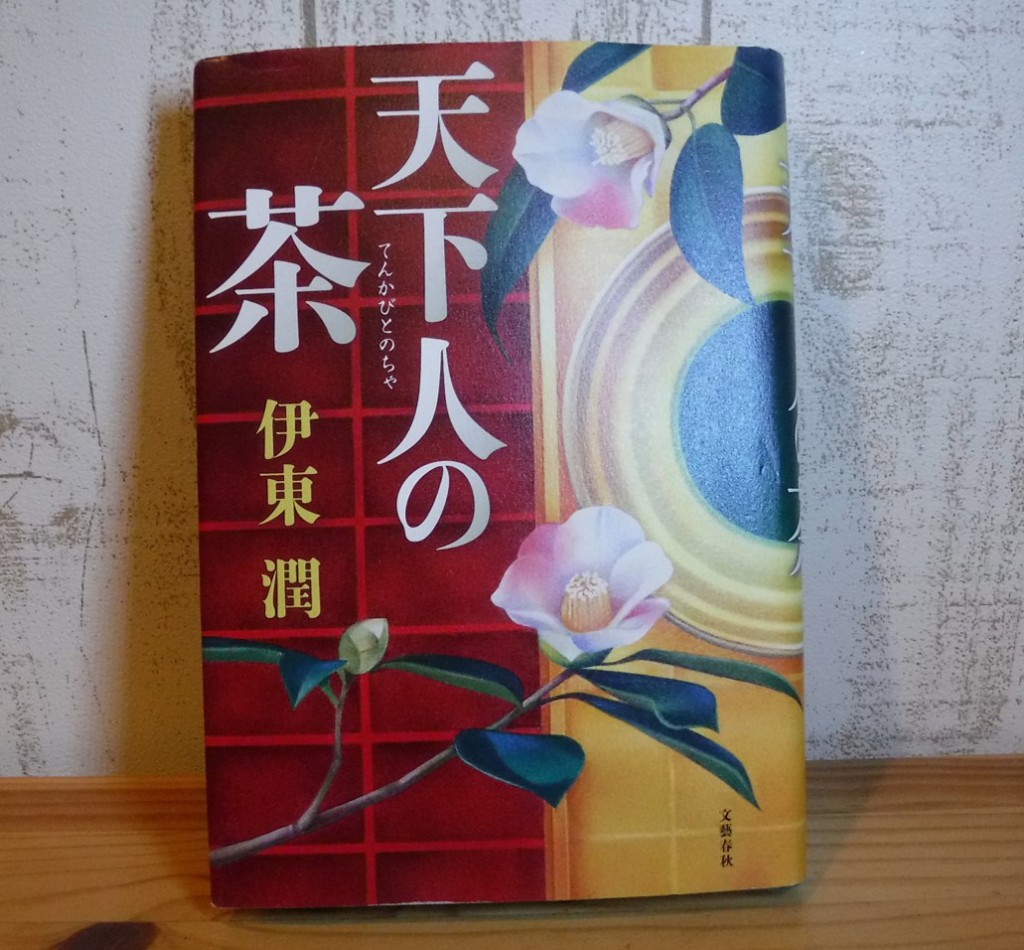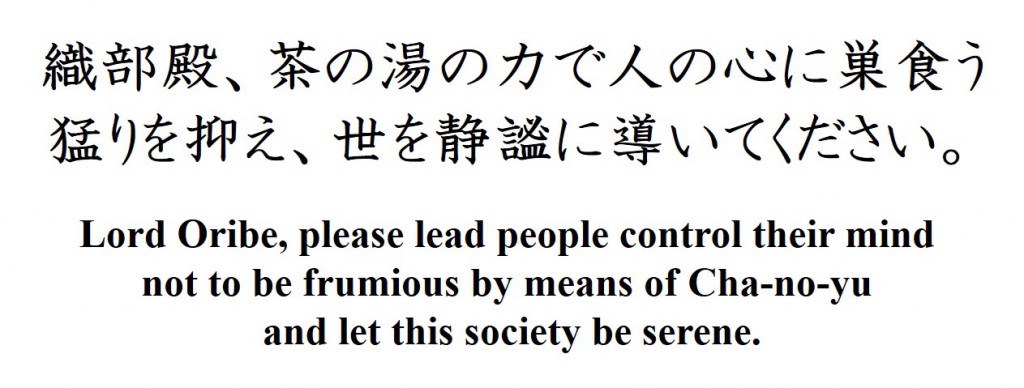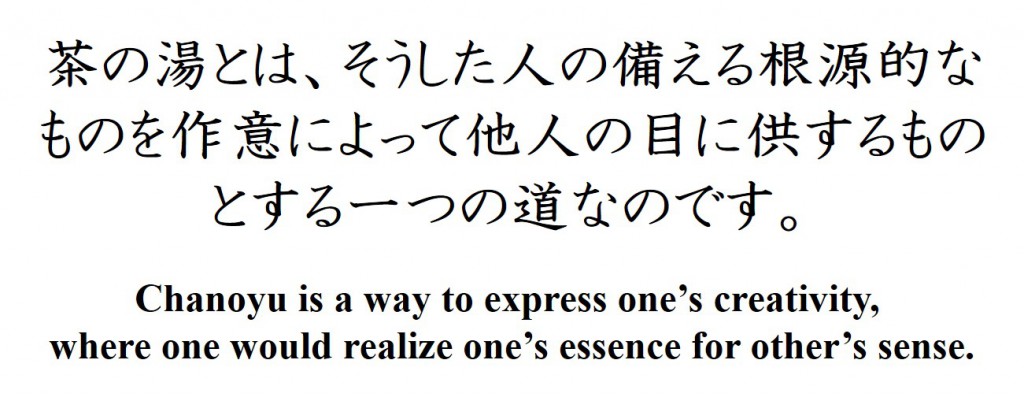 The book “Tenkabito no Cha”, literally meaning “tea of ruler”, led me realize one of the aspects of teaism. That is spiritual liberation.
The book “Tenkabito no Cha”, literally meaning “tea of ruler”, led me realize one of the aspects of teaism. That is spiritual liberation.
According to descriptions in the book, Sen no Rikyu, one of the best tea masters in the history of Japan, recognized that Cha-no-yu tea ceremony is the activity to produce something original based on one’s creativity derived from one’s essence. And he wished Cha-no-yu would provide people with spiritual serenity through the spiritual liberation, resulting in peaceful society.
Besides, the social movement at that time accelerate his intension. Most of Shoguns, Daimyo feudal lords and their retainers, so-called “Samurai” soldiers, also wished for the spiritual serenity in contrast to their lives of warrior. Their desires to be spiritually serene would drive them dive into Cha-no-yu tea ceremonies and teaism.
Behind the social wave, Sen no Rikyu had developed the main philosophy of Cha-no-yu, which has been continuing with improvements and arrangements to the present time. The book introduces some short stories of Rikyu in the views of those who had strong relation with him.
(Note) In my understanding, the book is written basically based on historical facts but conversations among characters and some parts would be explication of the author.
I’d like to share some of the most impressive phrases in the book as follows.
1. Wish for spiritual serenity

“Lord Oribe, please lead people control their mind not to be frumious by means of Cha-no-yu and let this society be serene.”
In the book story, Rikyu said this phrase to Lord Oribe, who is one of the best his disciples and one of the retainers of Toyotomi Hideyoshi.
Oda Nobunaga is written as the first Daimyo warlord to utilize the tea ceremony as a political means. He intended to give higher value to Cha-no-yu in order to pay the apparatus for tea ceremony as a consideration to his retainers, because he anticipated the lack of lands for the consideration in the future. For the aim, he ordered some of great tea masters, including Sen no Rikyu, to recommend Cha-no-yu widely. The meet to Oda Nobunaga provide Rikyu with the opportunity to spread Cha-no-yu comprehensively.
Toyotomi Hideyoshi, the next Shogun governing all Japan in that time, also exploited tea ceremony as political means. However his purpose was different from that of Oda Nobunaga. He made many rules restricting citizens such as the prohibition of possessing swords for citizens so-called “Katana-gari” (sword hunt), the tax policy based on the land survey using the unified measurement so-called “Taiko Kenchi”, strict hierarchy distinguishing soldier and farmer, prohibition of citizens’ travel from their countries etc. Instead of these restrictions for the purpose of governing whole country in Japan, he recommended tea ceremonies to all classes including Samurai soldiers, merchants, farmers and even to loyal clans. He would hope Cha-no-yu tea ceremony could solve the social stresses of people belonging to each class. And he is also one of the enthusiasts of Cha-no-yu. Therefore Rikyu relied on Toyotomi Hideyoshi and cooperated with him to promote tea ceremonies and related culture for the society.
Unfortunately at the last period of Toyotomi administration, the policy got worse and different from serenity and peace. At the end, Rikyu was ordered to suicide by him. Rikyu would be aware of his fate to death, so he asked Lord Oribe, the best disciple of him, to succeed his hope.
2. Chanoyu as a creative activity
 “Chanoyu is a way to express one’s creativity, where one would realize one’s essence for others’ sense.”
“Chanoyu is a way to express one’s creativity, where one would realize one’s essence for others’ sense.”
In the book story, Rikyu said this phrase to Lord Seta Kamon, who is one of the sharpest his disciples and one of the retainers of Toyotomi Hideyoshi.
This book let me find various aspects of Sen no Rikyu, such as artist, adviser for administration, merchant and of course tea master. Especially I was impressed with his artistic aspect through the eyes of his pupils.
It is described that Lord Seta touched Rikyu’s sense to arrange the nature. Lord Seta felt as if Rikyu could govern and administrate the nature, and his conscious and unconscious arrangement could result in the fantastic harmony of beauties everywhere, not only for tea room or the garden around tea room, even the road to tea room and the landscape viewed from tea room got a harmonized beauty due to the actions of Rikyu.
I’m also impressed with the thought of Lord Hosokawa Tadaoki, one of the pupils of Rikyu.
“Rikyu is the master of philosophy, He governs the world of sprit.”
His practices to express his creativity as his products including tea ceremony itself must result in his “way” bound to the beauty.
